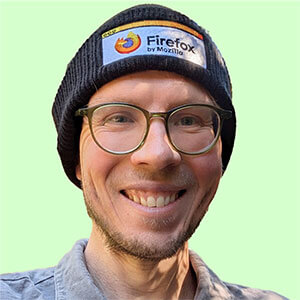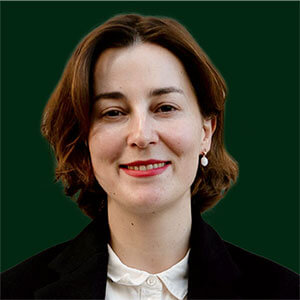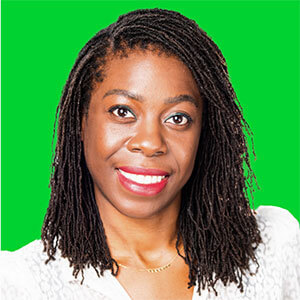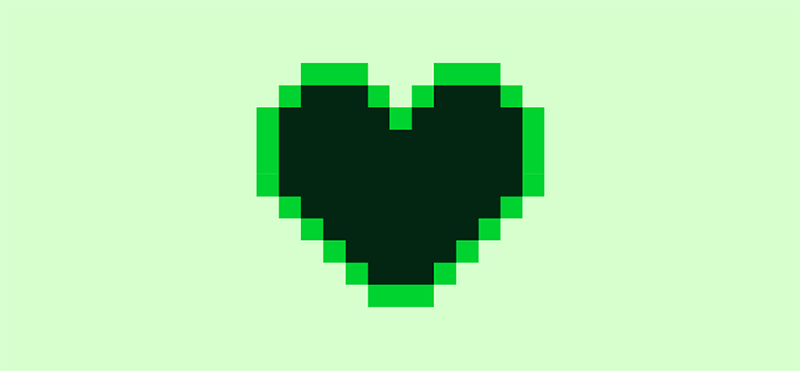
Devin Sandoz
Senior Director, Product Marketing - Firefox
When I first came to California in 2004 I ended up working for a very, very big tech company when they were still comparatively small, in Mountain View. I spent weeks in the office before someone informed me that I was indeed in Silicon Valley.
Back then the stakes felt smaller, the dreams bigger. I dressed up like a multi-level marketing werewolf for Halloween that year – the monsters of the internet were smaller and easier to slay.
I found small groups of people working incredibly quickly to test out new ideas. There was room for an English major like me alongside the computer scientists, the database engineers, and the business people in polo shirts. You could sketch something out on a whiteboard and see it in code days later.
Just down the road Mozilla was busy launching Firefox. A browser built in public that championed open source, invited participation, and caught on because it was simply better. This browser inspired enough passion that people chipped in together for an ad in the New York Times telling the world it was time for a change. Firefox was a spark that came from principled beliefs and grew because it belonged to everyone.
Since those naive and driven early days, I’ve lived and worked through numerous sea changes in the way information travels. What was originally a finite set of links has mutated into interlocking networks of distraction, inspiration, competing agendas, on-demand temptations, and clickbait engineered to hold your attention. It’s easy to be nostalgic for simpler times, but I’m here because I want to build the future. A place where the internet reverts from consumption back to connection, and where small ideas can bloom on their own merit.

Sema Karaman
Staff Product Policy Manager
My professional life began with human rights and humanitarian organizations and later transitioned into active roles in the policy space of technology companies like Google and TikTok, which make millions of decisions every day that profoundly impact people’s lives, both online and offline. I led and contributed to policy responses with critical implications, such as managing the role of monetized products during a global pandemic or ensuring election security. My time working at the world’s largest global platforms also provided me exposure to projects that directly impact user experience, like formulating responses to spam and fraud. I take the responsibility of working at a tech company very seriously because, through the many policy initiatives I worked on, I had a front-row seat to observing that building products is not merely about business decisions but about initiatives that fundamentally impact people’s lives.
With this awareness, joining Mozilla was a natural next step in my professional and personal journey. Mozilla doesn't just build products that people love but does so from a principled, mission-oriented perspective, actively shaping global tech regulation to prioritize the privacy and security of people's everyday online experiences. At Mozilla, I have the privilege of observing every day the uncompromising public policy work we undertake that puts the well-being of our users front and center. Being part of that journey and contributing to making the internet a truly more open and inclusive place is a professional opportunity I’m grateful for.

Dayo Lamolo
VP, Strategic Communications
I joined Mozilla because it knits together several longstanding passions of mine. I trained as a journalist – a fact checker, staff writer, book author and eat-what-you-kill reporter – first in Washington, DC and then in Nairobi. And then I attended law school, where I met our executive director Nabiha Syed, and like her focused on intellectual property, media freedom, internet privacy, the frontier aries of digital law, even policy work with the government of Iceland. I also got an MBA for good measure. Over eight years working within platform companies – I hope we’ll stop using the blanket term “big tech”– I built strategies for news organisations, movie studios, record labels, independent artists, and YouTube creators.
These experiences gave me the conviction that the future of our offline society depends on expert observation, interdisciplinary decision making, design thinking, and strong business judgment. And creativity and co-creation remains at the very heart of what I believe technology is good for.
Mozilla presents the opportunity to harness these insights for a fresh moment for co-creation. My number one role is to be a periscope for the organisation – to help the changemakers, builders and advocates inside Mozilla understand the world outside, and find ways to reconnect with a public that has changed over Mozilla’s first 25 years. The second function is to make Mozilla a lighthouse for the communities that have felt swept aside or left behind by the concentration of technology. Either because the conversation is trapped in Silicon Valley, or based on market power from some of the companies I sat inside, or based on the blind spots of movement tech organising, that overlook the less engaged communities that are at highest risk of badly-built defaults.
Mozilla offers an unreal opportunity to learn from longtime advocacy experts, and to speak with the knowledge I have earned sitting at the intersection of story and technology, law and policy. I look forward to partnering with creative industry stakeholders yet again as they confront the challenges of Generative AI and new frontiers in copyright. As someone who is based in Europe, who is of Africa, who was born American, I look forward to continuing Mozilla’s fully global approach to whom we speak and to whom we listen.

Andrew Grue
Director, Planning & Special Initiatives
In 2004 I urgently called my parents from college. “Can you buy a few copies of the print edition of the New York Times tomorrow? There’s an ad in it for a web browser – it’s open source!”
“Huh?!” I’m sure my parents asked. “It’s a lot faster,” I must have told them. “And it really works better on Mac OS X. And it’s not Internet Explorer… And I helped fund the promotion! My name’s in the paper.”
I imagine they laughed, shook their heads, and then, of course, bought a few newspapers. When I arrived home for winter break, copies of the Spread Firefox ad were proudly laid out in my room.
Now, twenty years after that initial donation, I can’t quite believe that I’m joining Mozilla.
Having spent my career at the intersection of technology and society – be it as a tech reporter, researcher, computational biology start-upper, or doing strategic planning for research and policy in big tech – I’ve learned that building better technology requires one to know what’s technically possible and what is humanly advantageous.
That’s why I’m so excited to be at the Mozilla Foundation today. The Foundation's ability to be a partner to technologists, activists, artists, and corporations provides an opportunity to apply my experience translating between differently expert audiences along with my cross-functional planning abilities… to make a better technology future for us all. Where else, if not Mozilla, is there a place where everyone is invited to help imagine, translate, and co-create a better technology future?

